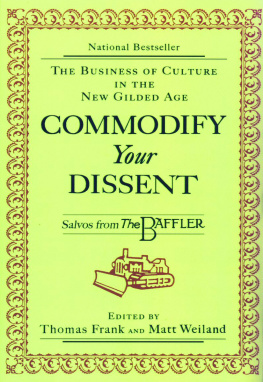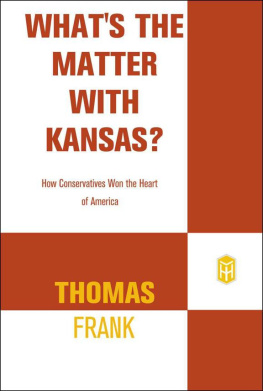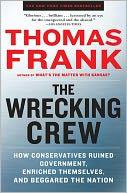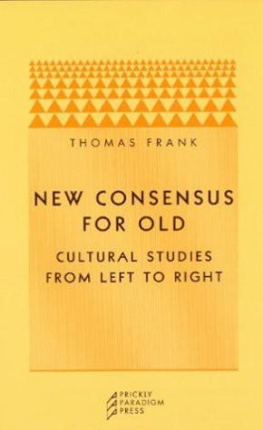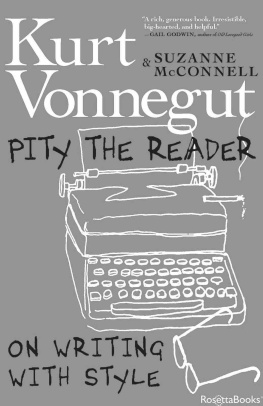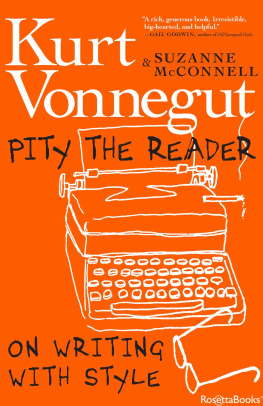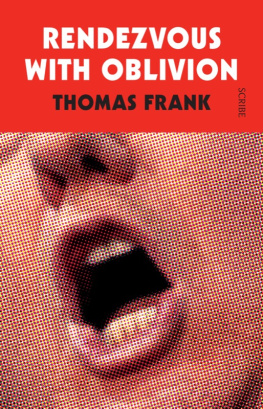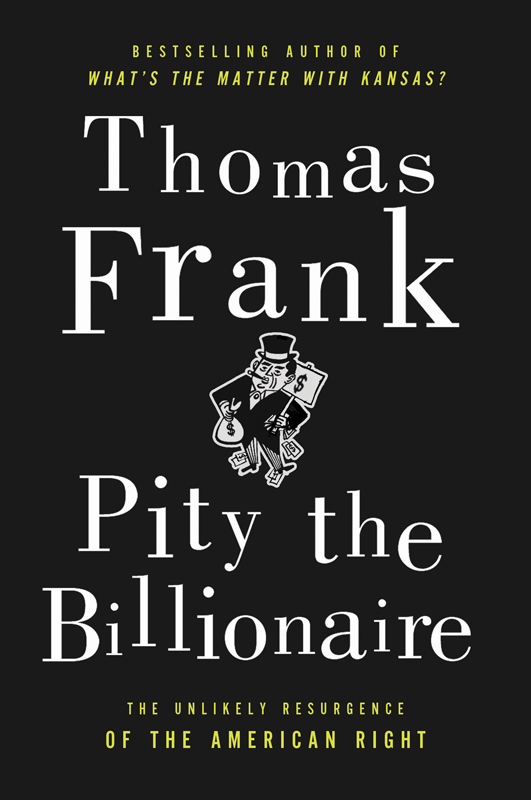
Images of small men usually arise and persist widely only because big men find good use for them.
C . W RIGHT M ILLS, White Collar
Contents
Introduction: Signs and Wonders
This book is a chronicle of a confused time, a period when Americans rose up against imaginary threats and rallied to economic theories they understood only in the gauziest terms. It is about a country where fears of a radical takeover became epidemic even though radicals themselves had long since ceased to play any role in the national life; a land where ideological nightmares conjured by TV entertainers came to seem more vivid and compelling than the contents of the news pages.
Seen from another perspective, this is a chronicle of a miraculous time, of another Great Awakening, of a revival crusade preaching the old-time religion of the free market.
Let us confess that there is indeed something miraculous, something astonishing, about all this. Consider the barest facts: this is the fourth successful conservative uprising to happen in the last half century, each one more a-puff with populist bluster than the last, each one standing slightly more rightward, and each one helping to compose a more spellbinding chapter in the historical epoch that I call the Great Backlash, and that others call the Age of Reagan (the historian Sean Wilentz), the Age of Greed (the journalist Jeff Madrick), the Conservative Ascendancy (the journalist Godfrey Hodgson), or the Washington Consensus (various economists).
Think about it this way. It has now been more than thirty years since the supply-side revolution conquered Washington, since laissez-faire became the dogma of the nations ruling class, shared by large numbers of Democrats as well as Republicans. We have lived through decades of deregulation, deunionization, privatization, and free-trade agreements; the neoliberal ideal has been projected into every corner of the nations life. Universities try to put themselves on a market-based footing these days; so do hospitals, electric utilities, churches, and museums; so does the Post Office, the CIA, and the U.S. Army.
And now, after all this has been going on for decades, we have a peoples uprising demanding that we bow down before the altar of the free market. And this only a short while after the high priests of that very cosmology led the world into the greatest economic catastrophe in memory. Amazing is right. Unlikely would also be right. Preposterous would be even righter.
In 2008, the countrys financial system suffered an epic breakdown, largely the resultas nearly every credible observer agreesof the decades-long effort to roll back bank supervision and encourage financial experimentation. The banks stumble quickly plunged the nation and the world into the worst recession since the thirties. This was no ordinary business-cycle downturn. Millions of Americans, and a large number of their banks, became insolvent in a matter of weeks. Sixteen trillion dollars in household wealth was incinerated on the pyre Wall Street had kindled. And yet, as I write this, the most effective political response to these events is a campaign to roll back regulation, to strip government employees of the right to collectively bargain, and to clamp down on federal spending.
So let us give the rebels their due. Let us acknowledge that the conservative comeback of the last few years is indeed something unique in the history of American social movements: a mass conversion to free-market theory as a response to hard times. Before the present economic slump, I had never heard of a recessions victims developing a wholesale taste for neoclassical economics or a spontaneous hostility to the works of Franklin Roosevelt. Before this recession, people who had been cheated by bankers almost never took that occasion to demand that bankers be freed from red tape and the scrutiny of the law. Before 2009, the man in the bread line did not ordinarily weep for the man lounging on his yacht.
The Consensus Speaks
The achievement of the thing is even more remarkable when we remember the prevailing opinion climate of 2008. After the disasters of the George W. Bush presidency had culminated in the catastrophe on Wall Street, the leading lights of the Beltway consensus had deemed that the nation was traveling in a new direction. They had seen this movie before, and they knew how it was supposed to go. The plates were shifting. Conservatisms decades-long reign was at an end. An era of liberal ascendancy was at hand. This was the unambiguous mandate of history, as unmistakable as the gigantic crowds that gathered to hear Barack Obama speak as he traveled the campaign trail. You could no more defy this plotline than you could write checks on an empty bank account.
And so The Strange Death of Republican America , by the veteran journalist Sidney Blumenthal, appeared in April of 2008even before the Wall Street crashand announced that the radical conservative George W. Bush had made the GOP into a minority party.
The thinking behind all this was straight cause-and-effect stuff. The 2008 financial crisis had clearly discredited the conservative movements signature free-market ideas; political scandal and incompetence in the Republican Party had rendered its moral posturing absurd; and conservatisms taste for strident rhetoric was supposedly repugnant to a new generation of postpartisan, postracial voters. Besides, there was the obvious historical analogy that one encountered everywhere in 2008: we had just been through an uncanny replay of the financial disaster of 192931, and now, murmured the pundits, the automatic left turn of 1932 was at hand, with the part of Franklin Roosevelt played by the newly elected Barack Obama.
For the Republican Party, the pundit-approved script went as follows: it had to moderate itself or face a long period of irrelevance. And as it failed to take the prescribed steps, the wise men prepared to cluck it off the stage. When the radio talker Rush Limbaugh made headlines in early 2009 by wishing that the incoming President Obama would fail, the former Bush speechwriter David Frum slapped him down in a much-discussed cover story for Newsweek . Judged by the standards of what would come later, of course, Limbaughs wish sounds quaint, even civil; at the time, however, it seemed so shocking that Frum depicted such rhetoric as kryptonite, weakening the GOP nationally. Venomous talk might entertain the partys bitter-enders, Frum acknowledged, but the price of going in that direction was the loss of the educated and affluent, who increasingly found that the GOP had become too extreme.
The GOPs strange drive toward self-destruction was a favorite pundit theme. When former vice president Dick Cheney announced that he preferred Limbaughs way to the route of moderation, the New York Times columnist Charles Blow laughed that Cheney was on a political suicide mission. And if his own party is collateral damage, so be it. When certain conservatives proposed a test to detect and punish heresy among Republican politicians, the Washington Post columnist Kathleen Parker called it a suicide pact. The respected political forecaster Stu Rothenberg concluded in April 2009 that the chance of Republicans winning control of either chamber in the 2010 midterm elections is zero. Not close to zero. Not slight or small. Zero.
Dustbin? No Thanks
What the polite-thinking world expected from the leaders of the American Right was repentance. They assumed that conservative leaders would be humbled by the disasters that had befallen their champion, George W. Bush; that Republicans would confess their errors and make haste for the political center. The world expected contrition.



